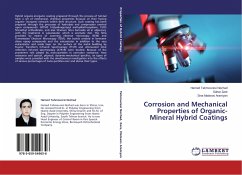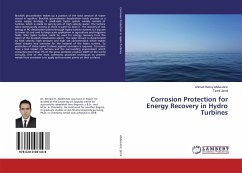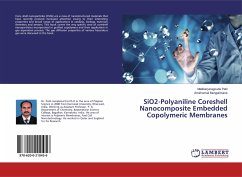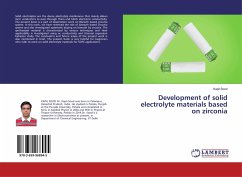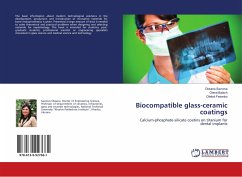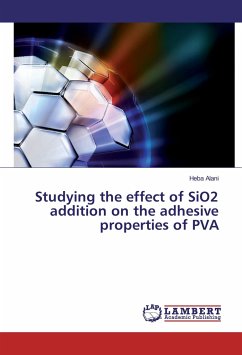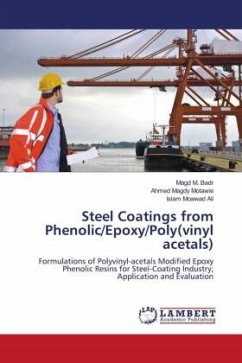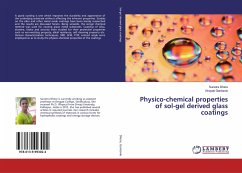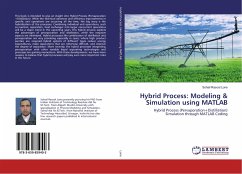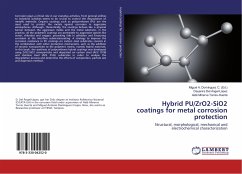
Hybrid PU/ZrO2-SiO2 coatings for metal corrosion protection
Structural, morphological, mechanical and electrochemical characterization
Herausgegeben: Domínguez C., Miguel A.
Versandkostenfrei!
Versandfertig in 6-10 Tagen
37,99 €
inkl. MwSt.

PAYBACK Punkte
19 °P sammeln!
Corrosion plays a critical role in our everyday activities, from general utilities to industrial activities seems to be crucial to control the degradation of metallic materials. Organic coatings such as polyurethanes (PU) are the most used to protect the metals against corrosion in aggressive atmospheres. Although, theoretically, the coatings behave like a physical barrier between the aggressive media and the metal substrate, in the practice, all the polymeric coatings are permeable to aggressive species like water, chlorides and oxygen, provoking fails in adhesion and favouring corrosion at t...
Corrosion plays a critical role in our everyday activities, from general utilities to industrial activities seems to be crucial to control the degradation of metallic materials. Organic coatings such as polyurethanes (PU) are the most used to protect the metals against corrosion in aggressive atmospheres. Although, theoretically, the coatings behave like a physical barrier between the aggressive media and the metal substrate, in the practice, all the polymeric coatings are permeable to aggressive species like water, chlorides and oxygen, provoking fails in adhesion and favouring corrosion at the interface substrate/coating. A strategy to improve the corrosion resistance in PU coatings on carbon steel substrates consists in the combination with other protection mechanisms, such as the addition of ceramic nanoparticles to the polymeric matrix, namely hybrid materials. In this book, the synthesis of polyurethane hybrid coatings was developed using ZrO2-SiO2 nanoparticles and deposited on carbon steel (AISI 1018) and stainless steel (AISI 316L) substrates in order to analyse the degradation process and determine the effects of composition, particle size and dispersion method.



